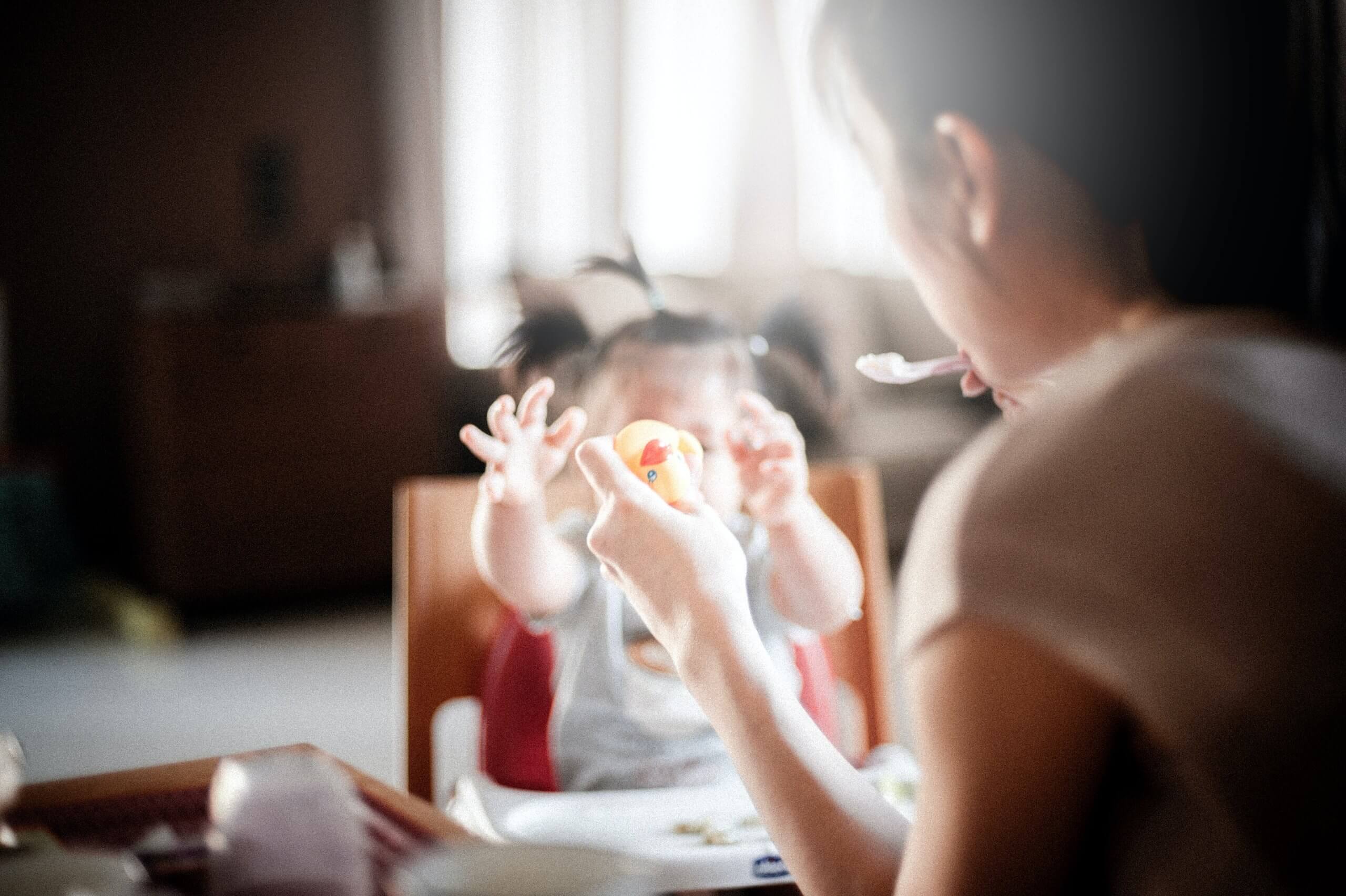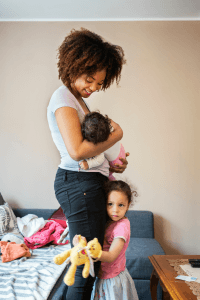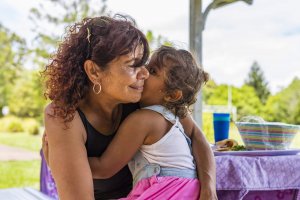
Delivering the Bringing Up Great Kids (BUGK) Program Online During COVID
What it meant for the parents who joined us on this journey, and what it meant for us.
This ‘Delivering the Bringing Up Great Kids (BUGK) Program Online During COVID’ blog article was written by Stefanie Ronzoni, Senior Child Counsellor, at the Australian Childhood Foundation and Jan Dacosta, Specialist Family Violence Counsellor at EACH.
The Bringing Up Great Kids (BUGK) Program was delivered online during COVID restrictions, to a group of Mothers who had experienced family violence. Where family violence exists, the home is not safe or secure and children are fearful of what might happen to them and the people that care for them. This has a direct impact on their sense of safety, their experience of relationship with their parents and their developing brains. Daniel Siegel (2004) instructed, “The mind develops as the brain responds to ongoing experience… The pattern of firing of neurons is what gives rise to attention, emotion, and memory.” And what fires together—in a combination of violent exposures and the child’s underlying neurobiological experience—wires together.
BUGK is a well-crafted program designed to build and repair nurturing relationships between parents and their children. It offers education and understanding about:
- Parents’ own parenting style – reflecting on their own experience of childhood and the attitudes and beliefs that have come with them.
- Child/brain development, and looks to understand children’s behaviour and the connection with their thoughts and feelings.
- The barriers to communication with the child, and being the parent they want to be.
- Self-Care, so they can sustain themselves to support their children.
- The program is designed to promote reflection, and build the capacity of parents to respond rather than react to children’s behaviours – ‘seeing things through their children’s eyes’.
Preparation
We, the facilitators, met to discuss how we would deliver each session, planning the exercises chosen to reinforce the concepts, and who would deliver each segment. This was key to building a cohesive presentation of the material, but also in building our rapport and communication with each other too. Quickly a sense of trust and appreciation of knowledge and skills evolved between us, which was crucial in managing our anxiety about the delivery of the program online.
The BUGK Program is usually delivered face to face, which provides both facilitators and participants predictability in environment, and a sense of privacy and confidentiality. These elements are really important to our parents who having been involved in abusive relationships, may be cautious in their trust, and feel vulnerable in exposing too much of themselves to strangers. So asking participants to link into a digital space was novel and anxiety provoking for all. Creating a psychologically and emotionally safe group was more challenging to achieve virtually, where communication could be misunderstood; trust and relationships thus requiring effort.

Facilitators made a phone call to each participant prior to commencement to ease the anxiety and enable fears to be expressed. Parents’ confidence in parenting had been impacted by family violence, and for some the impact had led to the children being placed in care. This experience led one Mother to feel ashamed and worried about how she might be judged by the others – as it turned out, some others had similar experiences and were able to empathise and support her. This was heart-warming to witness, and helped to build a bond and trust in the group process very quickly.
Additional factors that we faced included a participant who was hearing impaired and who needed Auslan interpretation – 2 interpreters were required due to the complexity of the program. Furthermore, due to COVID restrictions children were being home schooled at time, and so the group approached this in a flexible way, encouraging parents to tend to their children as needed.
Not all things are equal…. Some parents had internet connectivity issues and laptop difficulties, while some had to use their phones – incredibly links were intact for the most part!
Weekly Check-ins became a very important process of renewing connection and belonging in the group, as well as preparation for the topics we were all going to discuss. It gave time for the group to understand how they were each travelling, for challenges to be known, sensitivities to be understood, and bonding within the group to continue. It was also useful for the facilitators to gauge triggers and sensitivity in the participants.
Parents were encouraged to remember and reflect on their own childhood experiences and the messages of parenting they brought with them; the values, beliefs, attitudes and expectations they held for themselves as parents and for their children. Parents were supported to become curious about what messages they would want to give their children.
Psychoeducation on child and brain development became a vehicle for understanding why children need the warmth of a loving relationship, and how children develop an understanding that they are loved, and the world is a safe place.
The Stop Pause Play activity became a tool parents could embrace to give themselves and their children time to calm down and think clearly and consider how they would want to respond, rather than react in a ‘knee jerk way’. Learning to listen and understand the feelings that lay beneath children’s behaviours, led to lots of discussion amongst the parents and offered answers to some of the questions they had entered the group with, such as:
Parents began reflecting on questions like:
‘Why don’t they just do as they’re told?’
‘Why do ‘tantrums’ happen in young children?’
Parents expressed the goals they wanted to achieve:
“Prevent my children from behaving in abusive ways themselves in the future and healing from some trauma”
“To understand my kids better, strategies to parent them, confident to parent as a single parent”.
“Help me to be a better parent and improve my parenting skills”.
Goals were met:
“Yes, I think it’s helped me to feel I can do things now to prevent this happening later on and to better support them emotional to help with their trauma”.
Parents began noticing changes in their children…
“More understanding, expressing their feelings and worries”.
In themselves…
“Definitely more reflective, it has been confronting but overall positive as I look at what can be done in the present. I am more confident about what I was doing as I’m better able to articulate it”.
“I don’t let the little things get to me”. “I take a moment to calm down, not react in the heat of the moment, this has heaped heaps”.
And in their relationships with their children…
“We talk more, they understand the reasons for disciplining them. I learnt to explain the situation and why there are consequences”.
“Closer bond, better relationship”.

As parents themselves experienced support and understanding, they grew in confidence in their own capacity to parent, with a renewed understanding and interest in their children’s feelings – which can only be beneficial to their relationship and recovery from the trauma of family violence.
The group was well attended – parents did not miss a session. Parents were living in isolation due to Covid restrictions, and the group dispelled some of the aloneness experienced.
It was wonderful seeing the changes in improved confidence, and participation in discussion – we had trouble closing the sessions as parents wanted to continue on. Hearing the feedback from parents was so rewarding for us as facilitators, and understanding some parents continue to meet with each other is a testament to the need for supportive relationships.
In all it was a truly rewarding experience for all of us.
Registrations are open for our Brining Up Great Kids Facilitator workshop October intake. This training is suitable for all professionals working with parents in either an individual or group context. While the program focuses on primary aged children, it can be adapted for infants and adolescents. Positions are limited, if interested please register here.
Reference
Siegel, D., and Hartzell, M. (2004). Parenting from the inside out: How a deeper self-understanding can help you raise children who thrive. New York, NY: Tarcher.
The authors of this blog work within the Pathways to Resilience – South (PTR-S) Program which provides therapeutic services to child and adult family violence victim survivors, who reside in the Southern Melbourne region. The program provides an integrated and comprehensive suite of therapeutic Family Violence services brought together into one program, delivered by Uniting Victoria and Tasmania Limited (Uniting), EACH and ACF.
